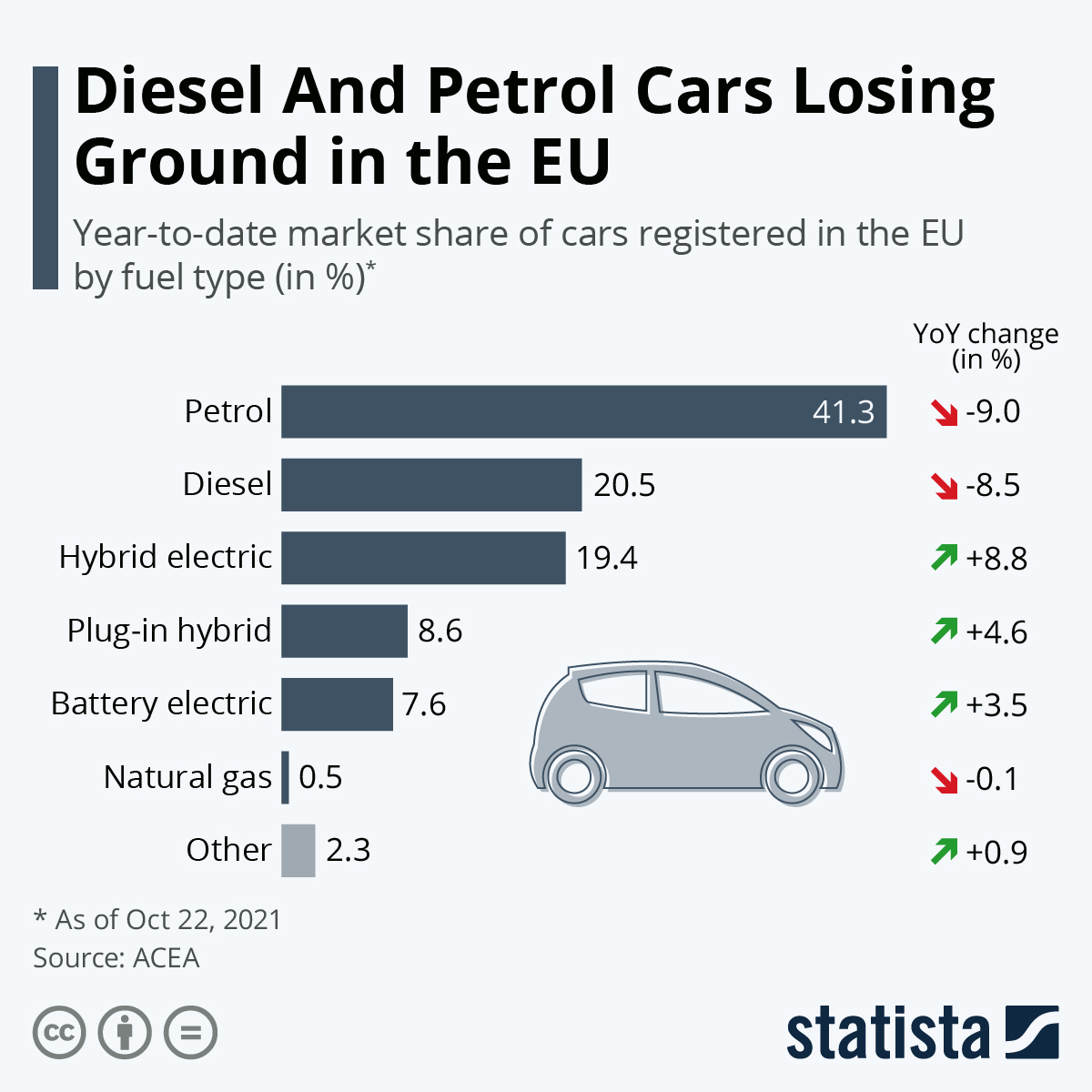The car industry is one of the sectors most impacted by supply chain disruptions and global chip shortages cause by the coronavirus pandemic. This hasn't stopped it from being under scrutiny for its role in climate change, whether due to the production process or the cars manufactured. When it comes to the latter, car buyers in the European Union seem to be doing their part to lessen the impact of fossil-fuel-powered automobiles.
In the first nine months of 2021, registrations of petrol and diesel cars went down by 9 and 8.5 percent, respectively, when compared to the previous year's timeframe according to data by the European Automobile Manufacturers' Association (ACEA). Vehicles with a hybrid electric powertrain, on the other hand, saw a rise in registrations of 8.8 percent, putting their market share of cars registered between January and September of 2021 about one percent behind diesel units. Overall, the share of cars with alternative power trains keeps rising steadily, making up more of a third of newly-registered automobiles in the EU in the first three quarters of this year. The shift towards electric cars with chargeable batteries is also not without its downsides. Even though a study conducted by the Universities of Exeter, Cambridge and Nijmegen has shown that the total average carbon emissions of an electric vehicle are still far lower than of one powered by fossil fuels, even with production emissions factored in, there's still the issue of sourcing the minerals for batteries, their longevity and the increased production of e-waste.
Even though the automotive industry in the European Union continues to hit its target values for the reduction of average CO2 emissions according to data from the ICCT, those numbers are to be taken with a grain of salt: Without phase-in provisions and extra credits for low-emission vehicles and eco-innovation technology, most big manufacturers like Ford-Volvo, BMW and Volkswagen would miss the mark by a considerable margin. Out of the estimated 7 gigatonnes of CO2 emitted by the transport sector in 2020, passenger cars contributed 2.9 gigatonnes or 40 percent.





















